
Empowering yourself through personal and professional growth is a rewarding journey. Setting clear and achievable goals is crucial to this journey and helps you stay focused on your goals.
At Eventible, we are proud to offer 15 inspiring professional development goal examples to help you reach new milestones in your career and life. These goals will help you become a more competent and confident professional and bring you closer to realizing your full potential. So, let’s get started.
What Are Professional Development Goals?
Professional development goals are objectives individuals set to improve their skills, knowledge, and abilities in their current or future careers. They can include taking classes or workshops, earning certifications, networking with other professionals, or gaining experience in a specific area.
Why Are These Professional Development Goals Important?
Professional development goals are essential because they can help individuals stay competitive in their field, advance their careers, and increase their earning potential. By continuously learning and growing, individuals can stay current with the latest trends and technologies in their industry and become more valuable employees. Additionally, setting and working towards professional development goals can give individuals a sense of purpose and fulfillment in their careers.
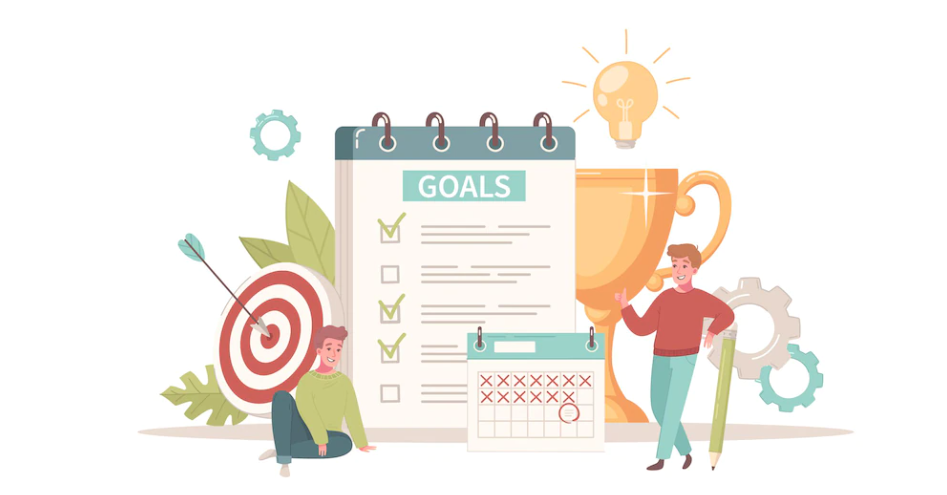
Setting SMART goals (specific, measurable, achievable, relevant, and time-bound) is ideal for professional growth and development. These goals are objectives used to help guide and focus efforts and decision-making. They are often used in business and personal development contexts to set clear and actionable targets.
Setting SMART goals can clarify priorities, focus efforts, increase motivation and accountability, and ultimately lead to better performance and success.
15 Professional Development Goal Examples To Benefit Your Career Growth
Here are 15 professional development goal examples to aid your career growth and development.
1. Improve Communication Skills
To become a competent working professional, it is essential to improve your communication skills. Improving communication skills is crucial because it helps individuals effectively express their thoughts, ideas, and needs to others.
It also allows them to better understand the perspectives and ideas of others, fostering stronger relationships and teamwork. Effective communication is also crucial in the workplace, leading to increased productivity, improved decision-making, and career advancement opportunities.

Effective communication can also help prevent misunderstandings and conflicts and be helpful in personal relationships, education, and other areas of life. You can improve your communication skills by taking a course or workshop in effective business writing or public speaking. Some other ways you can improve your communication skills to grow professionally are:
a) Practice active listening: This means actively paying attention and engaging with the person speaking rather than just passively hearing them.
b) Be clear and concise: Be direct and to the point, and avoid jargon or complex language that others may not understand.
c) Be adaptable: Be able to adjust your communication style to different audiences and situations.
d) Enhance your writing skills: Write effectively in emails, reports, and other documents.
e) Speak in public with confidence: Practice speaking in front of others to build confidence and improve your delivery.
f) Build strong relationships: Develop positive relationships with colleagues and clients by being approachable and easy to talk to.
g) Get feedback: Seek feedback from others on your communication skills and use it to improve.
h) Imbibe pleasant body language: Understand the nonverbal cues and body language of others to improve your communication.
i) Be open to different perspectives: Understand and be willing to learn from different perspectives and cultural backgrounds.
2. Expand your technical skills
Improving technical skills is essential because it can improve job performance and career advancement. Having strong technical skills can also increase job security and earning potential. Additionally, as technology constantly evolves, staying current with the latest tools and techniques can help individuals stay competitive in the job market.

Let’s look at a few ways to enhance your technical skills:
a) Educate yourself: Learn a new programming language or software development tool to expand your technical skills.
b) Stay updated to stay relevant: Take online courses or tutorials in areas that interest you or are relevant to your field.
c) Participate in Hackathons or coding competitions to gain hands-on experience and learn from others.
d) Study industry reports & publications: Read industry blogs and publications to stay up-to-date on the latest trends and technologies.
e) Network with other professionals: Attend conferences and networking events to connect with professionals in your field.
f) Collaborate with other professionals: Join a professional organization or community to learn from others and collaborate on projects.
g) Participate in mentoring or coaching programs: Doing so helps gain insights and advice from experienced professionals.
h) Innovate to stay abreast with the trend: Practice and experiment with new technologies and tools.
i) Be open to new ideas and opportunities: Seek opportunities to lead projects or teams, as leadership experience can be valuable in professional development.
3. Develop leadership skills
Leadership skill is the ability to guide, direct, and inspire a group to achieve a common goal or objective. It involves communicating effectively, making decisions, solving problems, and inspiring others to work together towards a shared vision. Leadership skills include strategic thinking, emotional intelligence, collaboration, adaptability, and decision-making.
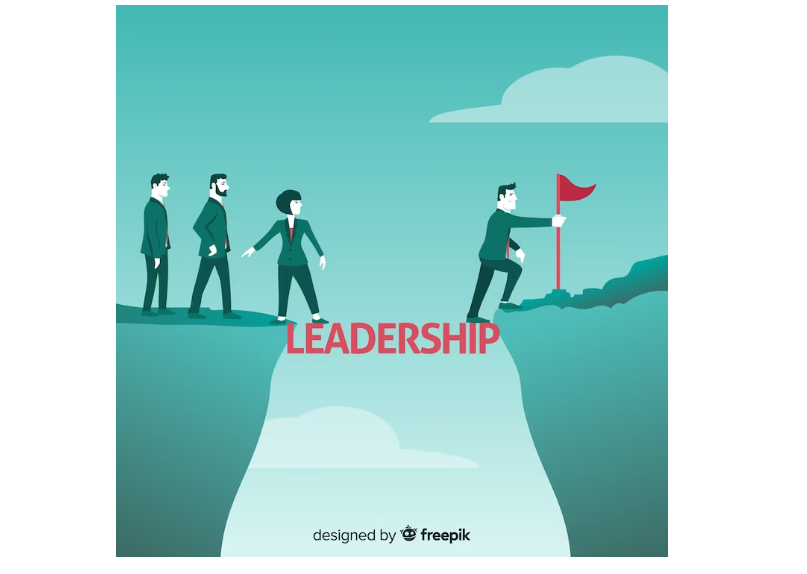
4. Hone Your Time Management Skills
Time management involves the process of planning and organizing how to allocate time effectively and efficiently to accomplish specific tasks, goals, and projects. It is an essential skill that allows individuals to make the most of their time and increase productivity.

It is crucial to improve time management skills through productivity tools and techniques. It helps prioritize and focus on the most important tasks, set goals and deadlines, reduce stress, and improve work-life balance. It also helps improve efficiency and effectiveness, use available resources better, achieve more tasks in less time, and improve personal and professional relationships and career advancement.
Some of the most effective ways of managing your time include,
a) Setting specific and measurable goals
b) Prioritizing tasks
c) Keeping a schedule or to-do list
d) Eliminating distractions
e) Taking regular breaks
f) Learning to say no
f) Delegating tasks
g) Managing interruptions
h) Using time-saving tools and technology
i) Review and adjust your approach regularly.
5. Enhance Your Networking Skills
Networking skills refer to building and maintaining professional relationships. Doing so can include communicating effectively with others, building trust, and understanding how to navigate social dynamics in a professional setting.

Networking is vital because it can help individuals expand their professional network, learn about new job opportunities, and gain access to valuable information and resources. It can also help individuals build their brand, establish themselves as thought leaders in their field, and gain visibility within their industry. Networking can help individuals grow their business or organization by connecting with potential partners, investors, and customers.
Here are some ways how you can enhance your networking skills.
a) Network in person: Attend industry events, conferences, and meetups to connect with people in your field.
b) Use online networking platforms: LinkedIn is an excellent tool for connecting with professionals in your industry.
c) Reach out to people you admire: Send an email or message to someone you admire or respect in your field and ask for their advice or guidance.
d) Be helpful: Offer to help others with their work or projects, and they will be more likely to help you.
e) Communicate effectively: Develop your communication skills to clearly and confidently convey your ideas and value to others.
f) Stay current: Stay informed about the latest trends and developments in your industry so that you can contribute meaningful insights and ideas to conversations.
g) Get involved: Volunteer for projects or initiatives in your industry. This will increase your visibility and allow you to connect with others.
6. Increase Industry-Related Knowledge
Industry-related knowledge refers to the knowledge and understanding of a specific industry or field. It includes information on the industry’s products and services, market trends, competitors, and regulatory environment.
This knowledge is crucial because it allows individuals and organizations to make informed decisions and stay competitive. It can also help identify new opportunities and potential threats and inform strategies for growth and expansion. In short, industry-related knowledge is essential for success and survival in a specific field.
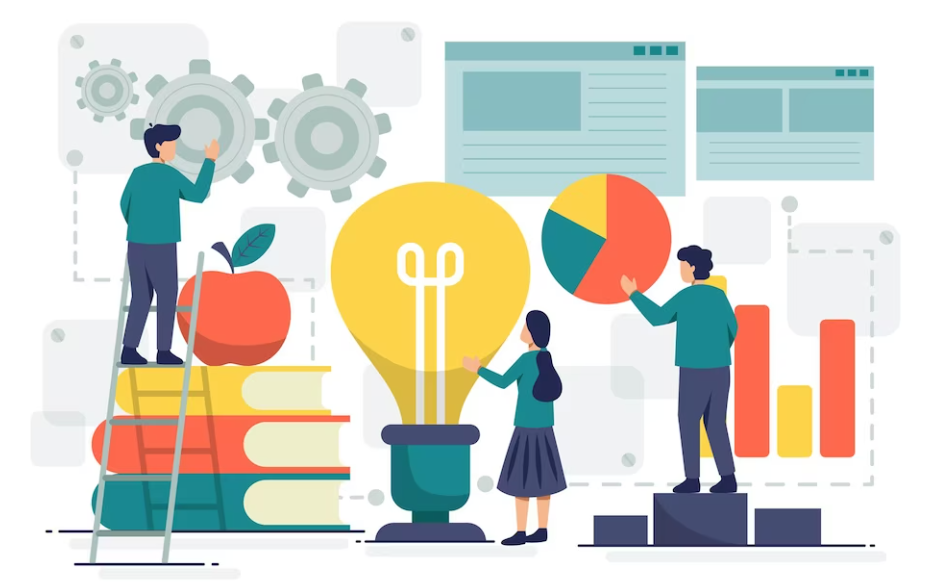
Increasing industry-related knowledge is an essential professional development goal because it allows individuals to keep up with the trends and developments in their field. Doing so can lead to more incredible job performance, career advancement opportunities, and a better understanding of how to approach and solve problems in their industry.
Some ways you can improve your industry-related knowledge include:
a) Reading industry publications and news articles to stay current on trends and developments in the field.
b) Attending industry conferences and events to network with professionals and learn new technologies and techniques.
c) Take relevant courses or obtain certifications to deepen your understanding of specific areas of the industry.
d) Joining professional organizations or industry groups to connect with other professionals and gain access to resources and information.
e) Participating in continuing education programs to stay updated with industry changes and technological advancements.
f) Follow thought leaders and experts on social media, websites, or blogs.
g) Participating in mentorship or apprenticeship programs to learn from experienced professionals.
h) Conduct research and experiment with new ideas to develop new skills and advance the industry.
7. Improve Project Management Skills
Project management skills are the abilities and knowledge needed to plan, execute, and close a project successfully. A project manager is a professional responsible for the start and completion of a project. They ensure that project goals and objectives are met within time, budget, and resource constraints.
They also coordinate and manage the work of project team members and communicate with stakeholders to ensure everyone is informed and aligned on the project’s progress and goals. You can improve your project management skills by taking a course or enrolling in a certification program. These skills include:
a) Planning and organizing: Defining project scope, goals, tasks, and resources needed.
b)Time management: The ability to manage and prioritize tasks to ensure a project is completed on schedule.
c) Leadership: The ability to lead and motivate a team to achieve the project goals.
d) Communication: The ability to communicate effectively with team members and stakeholders.
e) Problem-solving: The ability to identify and resolve any issues during the project.
f) Adaptability: The ability to adjust to project scope, schedule, or resource changes.
g) Risk management: the ability to identify and mitigate potential risks to the project.
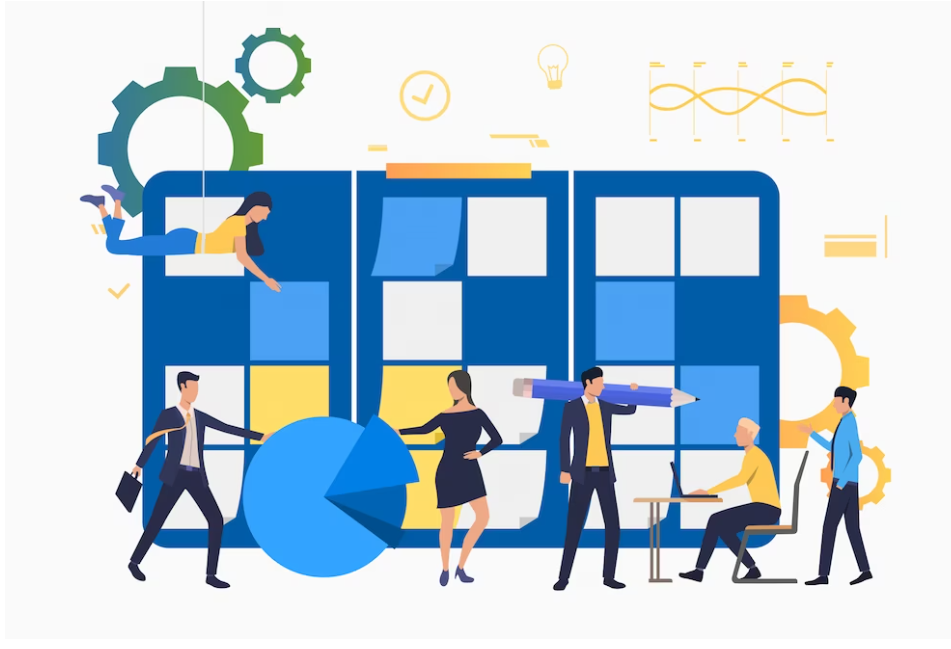
Project management skills are essential to growing professionally because they are transferable to many industries and are in high demand. These skills can help you plan and manage projects effectively, leading to more successful outcomes and job satisfaction. Additionally, they can help you to develop leadership and communication skills, which can be valuable in any field.
8. Learn a New Language
Learning a new language can signify professional development because it demonstrates a willingness to invest time and effort into personal and professional growth. It can also improve communication skills and expand cultural understanding, making it easier to work effectively with colleagues and clients from different backgrounds. Additionally, it can open up new job opportunities and industries that need bilingual or multilingual individuals.

There are several ways to learn a new language for professional development:
a) Enroll in a language course: Take a local college or university class or find a course online.
b) Hire a private tutor: This can be more costly but allows for personalized instruction and one-on-one attention.
c) Use language learning apps: Many apps, such as Duolingo, Babbel, and Rosetta Stone, can help you learn a new language.
d) Practice with native speakers: Joining language exchange programs or conversation groups can allow you to practice speaking and listening in a natural setting.
e) Immerse yourself in the language: Watch movies, read books, and listen to music in the language you’re trying to learn.
Finding a method that works best for you and consistently practicing and studying a new language is crucial.
9. Develop a better understanding of digital marketing
Brands require digital marketing, which uses digital channels or technologies to sell or promote a product or service. Skills that fall under the umbrella of digital marketing include email marketing, content marketing, advertising, search engine optimization, and pay-per-click (PPC) advertising, to name a few. To explain it, if you are being influenced to buy something online, you know that there’s digital marketing at work.
Learning digital marketing skills is essential because it can help professionals grow their careers in several ways. First, it allows them to reach and engage with customers through various online channels, such as social media, email, and search engines. This can lead to increased brand awareness, sales, and customer loyalty.

There are several ways to improve digital marketing skills:
a) Read relevant books and articles to stay current on industry trends and best practices.
b) Take online courses or certifications to learn specific skills, such as Google Analytics or social media advertising.
c) Experiment with different tactics and tools to gain hands-on experience.
d) Join professional organizations or attend industry events to network with other professionals and learn from their experiences.
e) Practice, practice, practice. The more you work on digital marketing, the better you will become at it.
10. Take Your Credentials To The Next Level
Advanced credentials, such as a graduate degree or professional certification, can indicate to employers that an individual has a certain level of expertise and knowledge.
This can make them more competitive in the job market and open up opportunities for career advancement. Continuing education and professional development can help individuals stay up-to-date and improve their skills, which can also benefit career growth.

There are several ways to take your credentials to the next level and grow professionally in your career. Some options include:
a) Continuing education: Look for opportunities to take relevant classes, workshops, or certifications to enhance your skills and knowledge.
b) Networking: Participate in industry events and connect with other professionals in your field. Establishing relationships with people in your industry can open up new growth opportunities.
c) Gaining work experience: Look for opportunities to take on new responsibilities or work on challenging projects that will help you develop new skills and gain experience.
d) Specialization: Consider specializing in a specific area of your field. This can make you more valuable to employers and open up new opportunities for advancement.
e) Leadership development: Develop leadership skills to become a leader in your field.
f)Entrepreneurship: Starting your own business can be a way to take your career to the next level, as you can be your boss and create opportunities for yourself.
11. Improve Your Financial Management Skills
Financial management skills are effectively planning, organizing, and controlling an organization’s financial resources to achieve its goals and objectives.
Learning financial management is necessary to improve one’s professional growth opportunities because it helps individuals understand how to manage their finances and make informed financial decisions effectively.

This knowledge can be applied to various professional contexts, such as budgeting for a project, investing in a business, or understanding a company’s financial performance.
Additionally, understanding financial management can help individuals become more valuable employees and increase their chances of being promoted or offered new opportunities for career advancement.
There are several ways to improve financial management skills and professional development. Some ways include:
a) Budgeting: Create a budget to track income and expenses and stick to it. Doing this will help you understand where your money is going and identify areas to cut costs.
b) Saving: Set financial goals, such as saving for retirement or building an emergency fund, and plan to achieve them.
c) Investing: Learn about different types of investments and how to diversify your portfolio to manage risk.
d) Learning: Read books and articles, take classes or workshops, or seek out a financial advisor to learn more about personal finance and investing.
e) Networking: Connect with other professionals in your field with strong financial management skills and learn from them.
f) Seek a mentor, someone you trust with a proven track record of sound financial management skills.
g) Practice: Developing good financial habits and including them in your daily routine takes time. After all, the more you practice, the better you get at it.
h) Keeping track of your money, you can use a personal finance app, excel sheet or even a notebook to keep track of your income and expenses.
By following these steps, you can improve your financial management skills and take control of your financial future.
12. Develop a better understanding of customer service
A better understanding of customer service means gaining more profound knowledge and skills in providing excellent customer service. This includes understanding customer needs, resolving issues, and building positive customer relationships.
It is necessary for professional growth because providing excellent customer service is essential for the success of any business. It can increase customer loyalty, positive word-of-mouth promotion, and higher sales and revenue.

There are several ways to develop a better understanding of customer service:
a) Study customer service best practices and principles: Learn about the principles and best practices of effective customer service and know how they can be applied to different industries and situations.
b) Get hands-on experience: Gain practical experience by working in customer service roles or by volunteering to help out with customer service at your current job or in your community.
c) Listen to customer feedback: Pay attention to customer feedback and use it to improve your customer service skills.
d) Understand the customer’s perspective: Try to put yourself in their shoes and understand their needs, concerns, and expectations.
e) Take a course or training program: Consider taking a course or training program on customer service to learn the latest techniques and best practices.
f) Practice active listening and empathy: Listening actively, understanding customers’ emotions, and providing empathetic responses can help you better understand customer service.
g) Stay up-to-date with industry trends: Keep abreast of the latest trends and developments in customer service to ensure you use the most effective techniques.
13. Improve your problem-solving and critical-thinking skills
Problem-solving skills include the ability to identify and solve problems effectively. This includes identifying the problem, gathering information, evaluating options, and implementing solutions.
Critical-thinking skills are the ability to analyze information and situations logically and objectively. This includes evaluating evidence, considering alternative perspectives, and making sound judgments. Problem-solving and critical-thinking skills are essential for making decisions, solving problems, and thinking creatively.
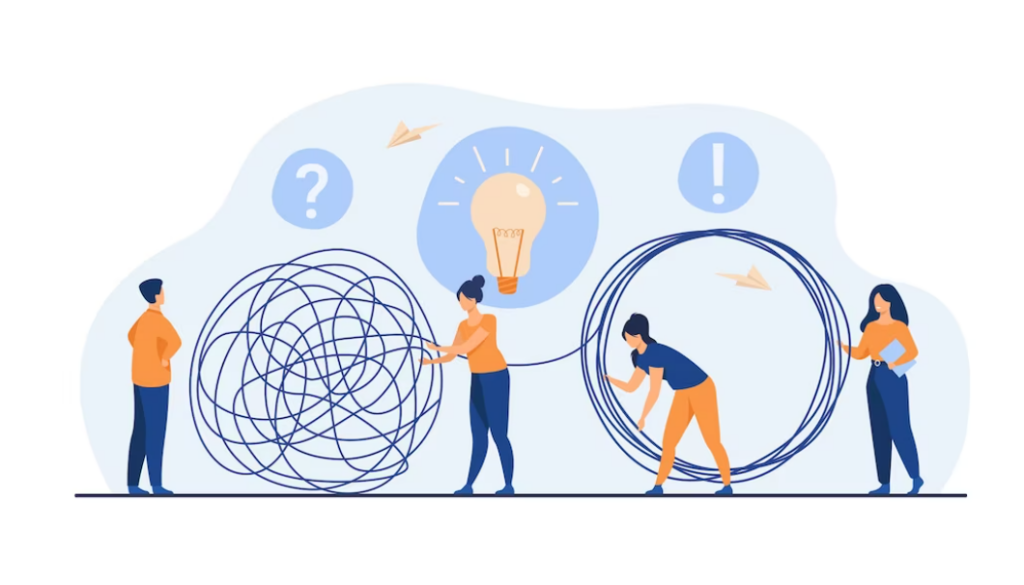
Problem-solving and critical thinking skills are essential for career growth because they allow individuals to analyze and solve problems effectively in the workplace.
These skills enable employees to make well-informed decisions, adapt to changing situations, and develop creative solutions to complex issues. In addition, employers highly value them, which can lead to promotions and advancement opportunities.
There are several ways to improve problem-solving and critical-thinking skills, which include:
a) Practice regularly: Regular practice helps to build and strengthen these skills.
b) Learn to analyze problems: Break down problems into smaller parts and evaluate each separately.
c) Learn to think logically: Use logic and reasoning to evaluate ideas and arguments.
d) Learn to evaluate evidence: Identify and assess the evidence that supports or refutes a claim.
e) Learn to make connections: See how different ideas and concepts are related.
f) Learn to question assumptions: Challenge assumptions and look at problems from different perspectives.
g) Learn from experience: Reflect on your past experiences and what you have learned from them.
h) Learn from others: Listen to and learn from the perspectives of others.
i) Read and Learn: Reading books, articles, and research papers can expose you to new ideas, perspectives, and ways of thinking.
14. Advance Your Negotiating Skills
Negotiating skills involve effectively communicating and reaching a mutually beneficial agreement with others, often in a business or professional setting. These skills can include effectively communicating one’s own needs and goals, actively listening to and understanding the perspectives of others, and finding creative solutions to conflicts or disagreements.
Negotiating skills are necessary for professional growth because they are essential for building and maintaining successful relationships in the workplace. Effective negotiation can lead to better deals, improved working conditions, and positive outcomes for all parties involved. Additionally, the ability to negotiate can be an essential factor in advancing one’s career, as it can help individuals secure better salaries, promotions, and other opportunities.

There are several ways to advance your negotiating skills:
a) Read and educate yourself on negotiation strategies and tactics.
b) Practice, practice, practice. The more you negotiate, the more comfortable and confident you will become.
c) Seek feedback from others on your negotiation style and strategies.
d) Learn from experienced negotiators and incorporate their techniques into your approach.
e) Be prepared and do your research before going into a negotiation.
f) Be aware of and manage your emotions during a negotiation.
g) Learn to communicate effectively and listen during a negotiation.
h) Be flexible and open to compromise.
i) Remember, negotiation skills can be constantly improved, so be open to learning and growing as a negotiator.
15. Develop a better understanding of data analysis
A better understanding of data analysis involves improving one’s skills and knowledge of the various techniques and methods used to collect, process, and interpret data.
This may include learning new software tools, statistical methods, and data visualization techniques and developing a deeper understanding of the underlying principles of data science and machine learning.
Additionally, it may involve gaining experience working with real-world data sets and learning to communicate the insights and findings from data analysis to others.
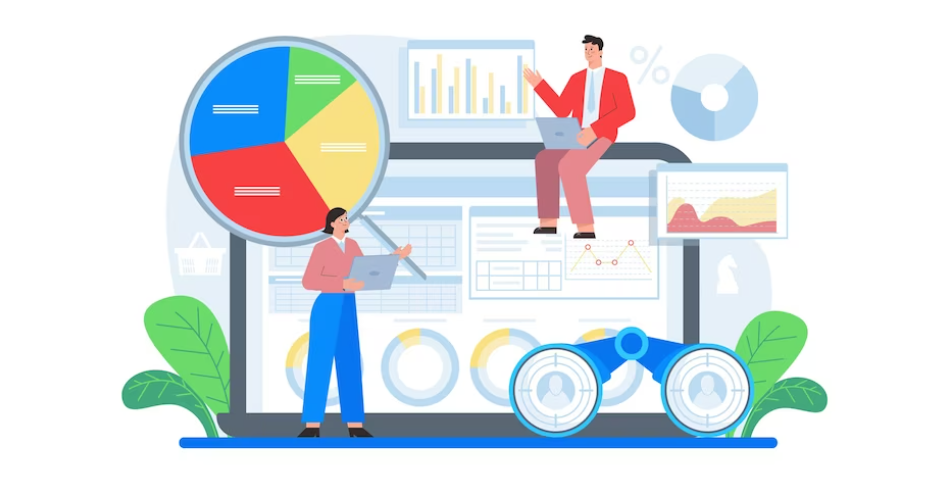
Improving one’s ability to analyze data can be important for professional development because it can help individuals make better decisions and improve their performance in their field. Analyzing data can help individuals identify patterns and trends, aiding in forecasting, problem-solving, and strategy development.
It can also help individuals evaluate the effectiveness of their current practices and make data-driven adjustments as needed. Additionally, data analysis skills are in high demand across many industries, so developing them can make an individual more valuable to their organization and increase their career opportunities.
There are several ways to improve one’s ability to analyze data: Learn basic statistical concepts and methods, such as mean, median, correlation, and regression.
Learn a programming language commonly used for data analysis, such as R or Python, and practice analyzing data sets using it.
a) Read and practice with data analysis and visualization tools like Excel, Tableau, or Matplotlib.
b) Learn and use machine learning techniques to analyze data.
c) Practice analyzing real-world data sets to gain experience.
d) Take an online course or pursue a degree in data science or a related field.
e) Read and stay updated with industry news and developments in data analysis.
f) Network with other data analysts and professionals to share knowledge and learn from others.
How Can Eventible Help You?
Events, such as conferences, workshops, and networking gatherings, can play a significant role in professional growth by providing opportunities for individuals to learn new skills, network with others in their industry, and stay up-to-date with the latest developments in their field.
Attending events can also inspire and motivate individuals to grow in their careers. Additionally, events can be a great way to establish connections and build relationships with others in the industry, leading to new professional growth and advancement opportunities.
A review platform for B2B events, Eventible, helps you decide which events are worth attending. It collects event and conference feedback from all important event stakeholders- speakers, attendees, and sponsors, to bring you unique and valuable insights from industry professionals.
It then runs these reviews through a unique scoring model to rate them as the best events or conferences to attend from a wide range of them. If you are looking to grow professionally, you can go through the reviews to narrow down your list of events to attend according to your preferences and requirements.
Key Takeaway
Professional goals are essential because they provide direction and motivation for an individual’s career. They help individuals focus their efforts and progress toward achieving their desired career outcomes. With our aforementioned list of professional development goals, we hope you can set and work towards your professional goals and achieve increased job satisfaction and success in your workplace.




Comments are closed.